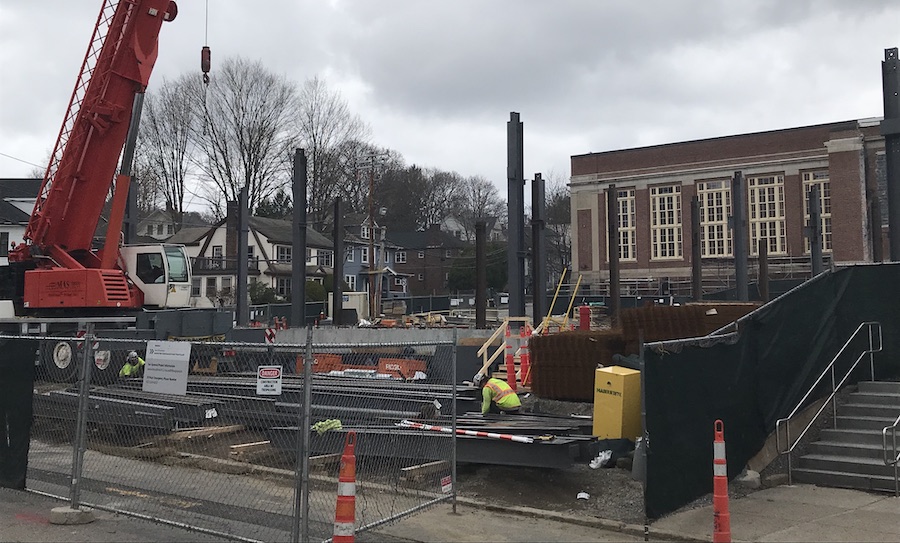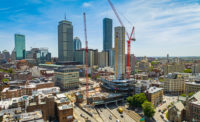Massachusetts Gov. Charlie Baker faces increasing pressure from labor leaders to halt all construction in the state as infections and deaths from the coronavirus mount.
In a letter, the Massachusetts Building Trades Council urged Baker, who has kept work on housing and infrastructure projects going amid the crisis, to shut down all but emergency work for the rest of the month starting April 3.
Council President Francis Callahan said the organization’s board voted unanimously for the shutdown after weeks of rising concern.
Callahan, whose group represents 75,000 building trades members across the state, said he has been getting a steady stream of reports of workers at construction sites testing positive for the deadly virus or showing signs of illness.
The reports are coming not just from union officials and workers, but also from some contractors, he said.
Callahan said the decision to call for a statewide shutdown also follows weeks of consultations with public and private health experts, as well as union members, contractors and training directors.
“It’s just a high-risk situation, where people are getting sick,” Callahan said. “We just came to realize there is no way to stop this, we can only slow it down.”
“The sooner we do this, the sooner we get people back to work and the economy going again,” he added.
A spokesperson for the governor was not immediately available for comment.
However, the Massachusetts Building Trades Council’s push comes amid a standoff between Baker and local officials, led by Boston Mayor Martin J. Walsh, on whether to shut down construction sites in a bid to stop the spread of the coronavirus.
Walsh, a former top construction trade union official, thrust the issue into the headlines more than two weeks ago, when he ordered a halt to all construction in Boston amid a building boom, a decision that affected nearly 200 projects across the city.
Other local cities have followed suit, including Cambridge and Somerville.
The governor has backed off an initial attempt to force cities and towns to drop their individual bans and follow the state’s lead, which had included a letter from the administration’s top lawyer.
Baker has also tightened rules on what construction can be considered essential, narrowing it to new housing, mixed-used projects with housing, and public infrastructure.
Construction of new office, lab and retail space no longer is considered essential.
Contractors and developers with projects on state land or under state supervision also were required to shut down on March 27 and review coronavirus safety and cleaning protocols.
Greg Vasil, CEO of the Greater Boston Real Estate Board, said his organization, whose members include developers and building owners, stands by Baker’s decision to keep housing and infrastructure projects going.
Instead of a blanket ban, projects should be reviewed on a case-by-case basis.
“We know we have a housing crisis in the Commonwealth we don’t have enough units,” Vasil said. “If we can keep some projects going, it is going to benefit us in the end.”
But Callahan contends the governor’s order “does not go far enough” and that the union seeks something “much more comprehensive.”
“The only way to protect the health and safety of our members, their families and of the general public is to keep people apart,” he said. “It is impractical and, in many cases, impossible to safely work.”





